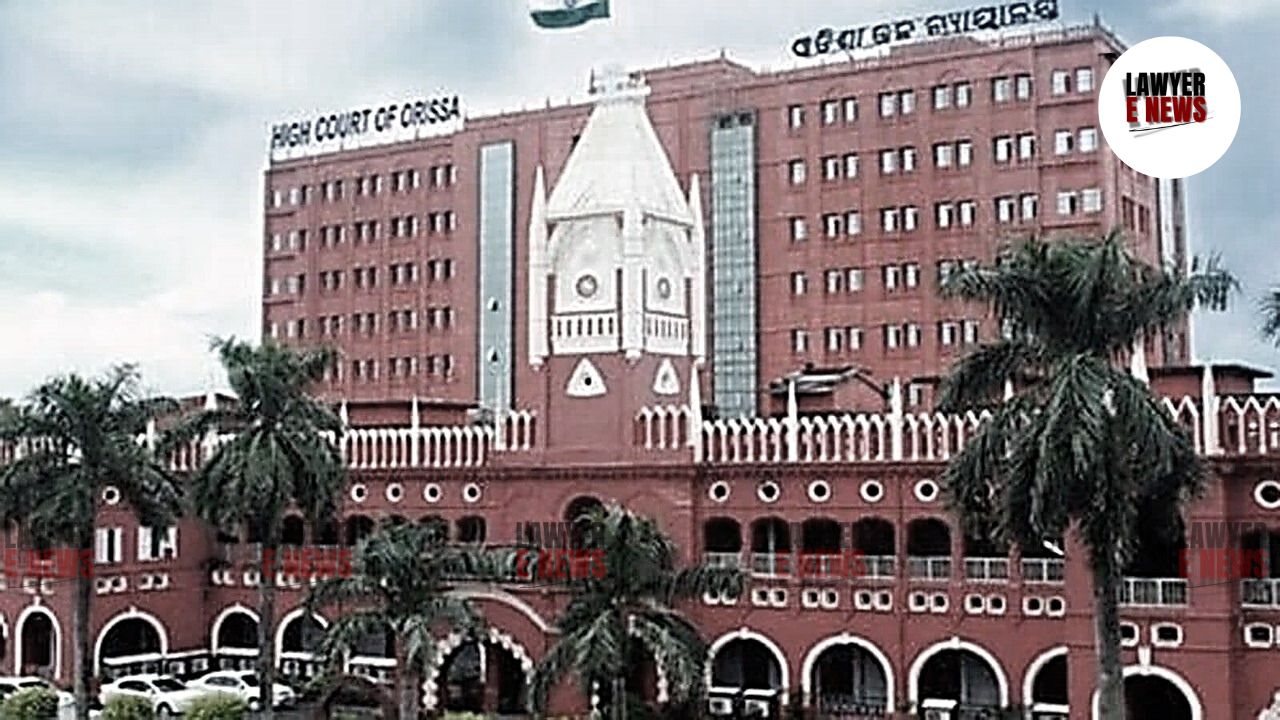-
by Admin
15 February 2026 5:01 PM



Orissa High Court rejecting petitions filed by Degree Engineers seeking eligibility to apply for Junior Engineer (JE) posts under the Combined Technical Services Recruitment Examination, 2023. The court ruled that Degree Engineers cannot claim equivalence with Diploma qualifications unless explicitly provided in the recruitment rules, thereby affirming the autonomy of employers in setting qualifications.
"Equivalence Cannot Be Presumed; Recruitment Criteria Are Employer’s Prerogative"
The court underscored the principle that higher qualifications do not automatically presuppose lower ones unless explicitly stated in the recruitment rules. Referring to a line of judicial precedents, including Zahoor Ahmad Rather v. Sheikh Imtiyaz Ahmad (2019) and Unnikrishnan CV v. Union of India (2023), the court emphasized that judicial intervention is unwarranted in recruitment policy matters unless there is ambiguity or violation of law.
The dispute arose when the Odisha Staff Selection Commission (OSSC) issued an advertisement dated December 8, 2023, for recruiting Junior Engineers (JE) under the Combined Technical Services Recruitment Examination, 2023. The eligibility criteria restricted applicants for JE (Civil) posts to holders of a Diploma in Engineering or equivalent qualification. Degree Engineers argued that their higher qualification should inherently include eligibility for diploma-based posts.
Diploma Engineers’ Opposition: Intervenors representing Diploma Engineers contended that the advertisement was clear and unambiguous. They argued that allowing Degree Engineers to compete would encroach upon posts specifically reserved for Diploma holders under the Odisha Diploma Engineers’ Service Rules, 2012.
Degree Engineers’ Argument: Petitioners claimed that Degree qualifications should be considered equivalent or superior to Diplomas, citing educational frameworks such as the AICTE Regulations, 2007, which equate diplomas with the first year of degree programs for lateral entry.
Equivalence of Qualifications: Whether a Degree in Engineering presupposes a Diploma in Engineering for recruitment purposes.
Judicial Role in Recruitment Policy: The extent to which courts can interpret or expand qualifications prescribed by recruitment rules.
Rules Governing JE Recruitment: Whether the Odisha Diploma Engineers’ Service Rules, 2012, and the Combined Technical Services Recruitment Examination Rules, 2022, permit Degree Engineers to compete for JE posts reserved for Diploma holders.
The court reiterated the principle that fixation of qualifications for government posts lies exclusively within the domain of the employer. It held that the State, as the employer, is entitled to prescribe qualifications based on the job’s nature and requirements, without interference from the judiciary.
Citing Zahoor Ahmad Rather (2019), the court observed:
"Judicial review cannot expand the ambit of the prescribed qualifications. Equivalence of qualification is a matter for the State, as recruiting authority, to determine."
The court rejected the argument that a degree inherently includes a diploma. It clarified that both qualifications operate independently and cater to distinct recruitment needs. The court emphasized that equivalence must be expressly provided in recruitment rules and cannot be assumed based on educational hierarchies.
AICTE Regulations Misinterpreted: While the AICTE Regulations, 2007, allow lateral entry into degree programs for diploma holders, the court noted that this provision pertains to academic progression and not recruitment.
The court found that the Odisha Diploma Engineers’ Service Rules, 2012, explicitly restrict JE (Civil) posts to Diploma holders. For JE (Mechanical) posts, Degree Engineers are permitted, provided they also possess a Diploma. The advertisement was consistent with these rules and left no room for ambiguity.
The petitioners cited Puneet Sharma v. HPSEB (2021), where Degree Engineers were allowed to compete for Diploma-level posts due to specific provisions in the recruitment rules. The court distinguished this case, stating that Odisha’s recruitment framework lacks similar provisions or quotas for Degree Engineers.
"The prescription of qualifications for a post is a matter of recruitment policy. The employer is best suited to decide the qualifications required for a specific job, and courts must tread cautiously in matters of judicial review."
"Degree and Diploma qualifications operate independently. A degree does not presuppose the acquisition of a diploma, nor do they share a hierarchical relationship."
"Judicial review cannot rewrite recruitment rules or expand the ambit of qualifications. The court’s role is limited to ensuring compliance with the law."
Petitions Dismissed: The court dismissed the petitions, holding that Degree Engineers are ineligible for JE (Civil) posts under the current advertisement.
Interim Orders Vacated: Interim orders allowing Degree Engineers to apply for the examination were vacated.
Final Declaration: The court affirmed that only Diploma holders or those with equivalent qualifications recognized under the Odisha Diploma Engineers’ Service Rules, 2012, are eligible for JE (Civil) posts.
The judgment underscores the judiciary’s restraint in interfering with recruitment policies and its commitment to upholding the employer’s discretion. It reinforces the principle that qualifications must align strictly with the rules and advertisements, and assumptions of equivalence have no place in recruitment processes.
Date of Decision: December 3, 2024
